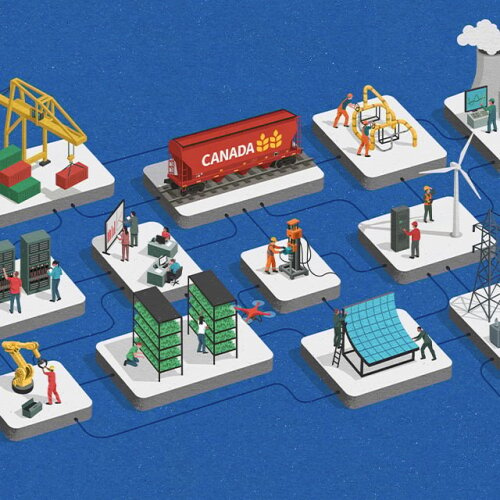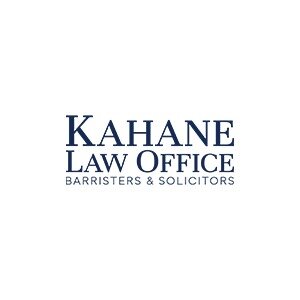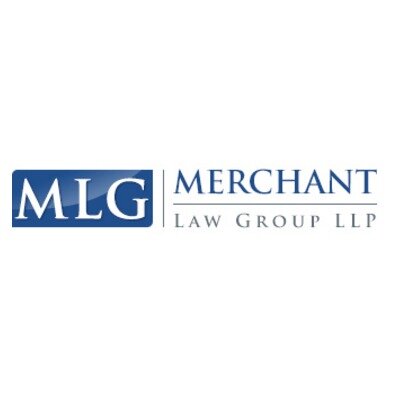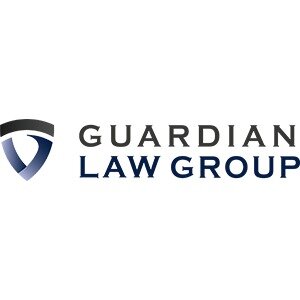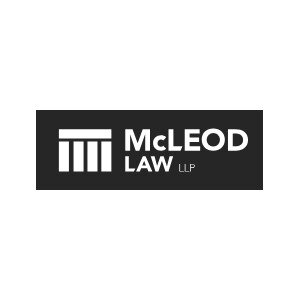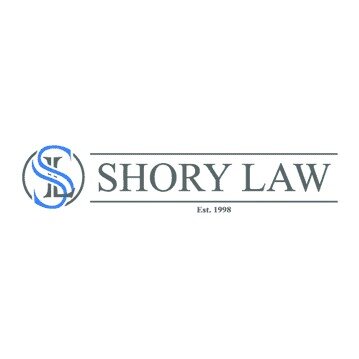Best Renewable & Alternative Energy Lawyers in Calgary
Share your needs with us, get contacted by law firms.
Free. Takes 2 min.
List of the best lawyers in Calgary, Canada
About Renewable & Alternative Energy Law in Calgary, Canada
Calgary is at the forefront of Canada's transition to cleaner energy sources, with a growing emphasis on renewable and alternative energy such as wind, solar, hydro, geothermal, and bioenergy. Renewable & Alternative Energy law governs the development, operation, and regulation of these energy sources. It includes federal, provincial, and municipal considerations, shaping everything from project permitting to grid integration and environmental compliance. Calgary's unique position as a major energy hub means local laws are designed to balance innovation, environmental protection, and economic growth in the energy sector.
Why You May Need a Lawyer
Legal counsel is essential in many renewable and alternative energy projects and situations. Here are some common scenarios where a lawyer’s expertise can be crucial:
- Securing permits and ensuring compliance with environmental and building regulations
- Negotiating leases or land use agreements for the installation of renewable energy infrastructure
- Drafting and reviewing power purchase agreements (PPAs) and contracts with utility companies
- Advising on tax incentives, rebates, and government grants for green projects
- Navigating municipal bylaws and provincial regulations regarding new installations
- Managing stakeholder engagement and addressing any disputes or objections
- Handling intellectual property and technology licensing within the sector
- Assisting in mergers, acquisitions, and investments in renewable energy businesses
- Representation in case of regulatory investigations or enforcement actions
Local Laws Overview
Renewable and alternative energy development in Calgary is governed by a combination of federal, provincial (Alberta), and municipal laws. Some key local legal aspects include:
- The Alberta Utilities Commission (AUC) regulates most power projects, ensuring public interest and environmental protections.
- The Alberta Electric System Operator (AESO) coordinates the province’s electricity system, including incorporating new sources.
- Municipal bylaws may control zoning, permitting, and property use for rooftop solar, wind turbines, and other installations.
- Environmental laws at all government levels require environmental assessments and adherence to wildlife and habitat protection rules.
- There are specific rules about interconnection of grid-tied systems, distributed generation, and net metering in Calgary and across Alberta.
- Energy projects often involve Indigenous consultation and engagement, as mandated by law.
- Tax credits and incentive programs are available, but have specific eligibility criteria and compliance requirements.
Frequently Asked Questions
What counts as renewable or alternative energy in Calgary?
Renewable and alternative energy includes wind, solar, hydro, geothermal, and bioenergy sources. Alternative energy can also refer to cleaner technologies that reduce reliance on conventional fossil fuels.
Do I need a permit to install solar panels on my property in Calgary?
Yes, most residential and commercial solar panel installations require permits from the City of Calgary. The process ensures safe installation, compliance with building codes, and adherence to local bylaws.
Are there incentives for installing renewable energy systems?
Incentives may be available at the federal, provincial, or municipal level, including grants and rebates. Program availability changes, so it is important to verify current options and requirements.
Can I sell surplus power from my renewable system back to the grid?
Yes, Alberta’s Micro-Generation Regulation allows eligible systems to send excess electricity back to the grid, potentially earning credits or payments on your utility bill, subject to certain conditions.
What zoning rules might affect my project?
Calgary has zoning bylaws that specify where renewable energy systems can be installed. Factors include system size, property type, and proximity to other structures. Always check with the municipal planning department.
What environmental assessments are required for energy projects?
Large-scale projects must complete environmental assessments per provincial and sometimes federal laws, addressing issues like wildlife, water, and land impacts. Smaller projects may have reduced requirements.
How are Indigenous rights considered in renewable energy development?
Canadian law mandates consultation with Indigenous communities where projects may impact their rights or lands. Consultation is key for project approval and often includes negotiation and ongoing collaboration.
What is a power purchase agreement (PPA) and do I need one?
A PPA is a contract between an energy producer and purchaser that outlines the terms of selling electricity. It is vital for large or commercial projects, providing revenue certainty and clear responsibilities.
What should I consider in a lease or land agreement for renewable projects?
Pay attention to term length, payment structure, project scope, insurance, maintenance, environmental obligations, and decommissioning. Legal review can prevent future disputes.
How do I resolve disputes related to renewable energy projects?
Disputes may arise over contracts, land use, or regulatory issues. Many are resolved through negotiation or mediation, but some require formal proceedings before regulators or the courts. Legal counsel can guide the best approach.
Additional Resources
If you are seeking more information or support on renewable and alternative energy law in Calgary, consider the following resources:
- Alberta Utilities Commission (AUC) - Regulates electricity and natural gas utilities and ensures compliance with laws.
- Alberta Electric System Operator (AESO) - Responsible for the planning and operation of Alberta’s electrical system.
- City of Calgary - Planning & Development - Provides permits, zoning details, and guidance for energy installations within the city.
- Natural Resources Canada - Offers national programs and information on renewable energy incentives and standards.
- Canadian Renewable Energy Association - Advocacy and resources for developers, businesses, and consumers.
- Indigenous Relations offices - For guidance on consultation and partnership in energy projects.
- Law Society of Alberta - Find qualified lawyers specializing in energy and environmental law.
Next Steps
If you are considering a renewable or alternative energy project in Calgary or facing a related legal issue, these steps can help you move forward:
- Identify your project goals and gather relevant property and project information.
- Research applicable laws, bylaws, and incentives using the resources above.
- Prepare a list of questions or concerns specific to your situation.
- Consult with a qualified lawyer experienced in energy law to review contracts, permits, and regulatory requirements.
- Engage with stakeholders early, including local authorities and Indigenous communities if relevant.
- Ensure you have a clear compliance plan for environmental, zoning, and grid connection requirements.
- Keep records of all communications and agreements throughout your project.
Taking these proactive steps will help safeguard your interests and promote the success and sustainability of your renewable energy initiative.
Lawzana helps you find the best lawyers and law firms in Calgary through a curated and pre-screened list of qualified legal professionals. Our platform offers rankings and detailed profiles of attorneys and law firms, allowing you to compare based on practice areas, including Renewable & Alternative Energy, experience, and client feedback.
Each profile includes a description of the firm's areas of practice, client reviews, team members and partners, year of establishment, spoken languages, office locations, contact information, social media presence, and any published articles or resources. Most firms on our platform speak English and are experienced in both local and international legal matters.
Get a quote from top-rated law firms in Calgary, Canada — quickly, securely, and without unnecessary hassle.
Disclaimer:
The information provided on this page is for general informational purposes only and does not constitute legal advice. While we strive to ensure the accuracy and relevance of the content, legal information may change over time, and interpretations of the law can vary. You should always consult with a qualified legal professional for advice specific to your situation.
We disclaim all liability for actions taken or not taken based on the content of this page. If you believe any information is incorrect or outdated, please contact us, and we will review and update it where appropriate.



